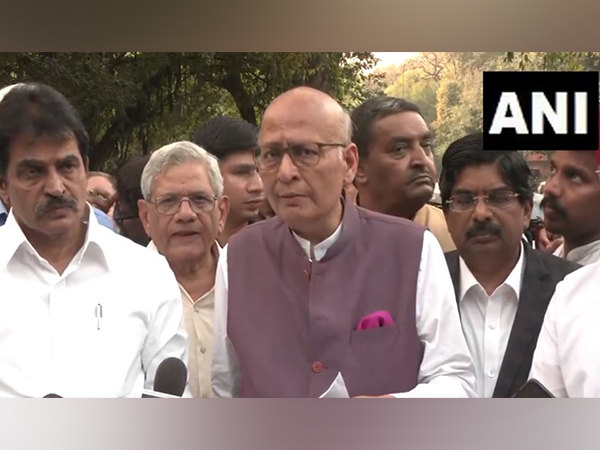High-Stakes Legal Battle: Singhvi Represents Thackeray Faction in Supreme Court Showdown
Senior lawyer Abhishek Singhvi met with Shiv Sena (UBT) chief Uddhav Thackeray in Mumbai amid an ongoing legal battle in the Supreme Court. Singhvi, representing Shiv Sena (UBT), aims to disqualify rebel lawmakers from Eknath Shinde's camp. The court is set to review the plea challenging the Maharashtra assembly speaker’s order favoring Shinde.

- Country:
- India
Senior lawyer and Congress leader Abhishek Singhvi met with Shiv Sena (UBT) chief Uddhav Thackeray at his residence in Mumbai on Saturday.
Singhvi, a key figure in the legal team representing Shiv Sena (UBT) in the Supreme Court, seeks to disqualify lawmakers from the Eknath Shinde camp who rebelled against Thackeray in 2022, causing a split in the party and the collapse of the Maha Vikas Aghadi government.
The Supreme Court on July 10 agreed to consider listing a plea by the Uddhav Thackeray faction challenging Maharashtra legislative assembly speaker Rahul Narwekar's order, which declared the Shiv Sena bloc led by Chief Minister Eknath Shinde as the 'real political party' after its split in June 2022.
The speaker had dismissed disqualification petitions filed by the Thackeray faction against CM Shinde and his supporting MLAs.
Singhvi, representing UBT leader Sunil Prabhu, argued for the urgency of listing the plea, noting the nearing end of the assembly's term. On January 22, the top court issued notices to the chief minister and other lawmakers of his group on Prabhu's plea, alleging that Shinde 'unconstitutionally usurped power' and leads an 'unconstitutional government.'
Speaker Narwekar's January 10 order also rejected the Thackeray faction's plea to disqualify 16 MLAs of the ruling camp, including Shinde. Challenging these orders, the Thackeray faction claims they are 'patently unlawful and perverse,' arguing that they reward defectors instead of punishing defection.
(With inputs from agencies.)
ALSO READ
Tragic Bus Accident Claims Lives of Maharashtra Pilgrims in Nepal
Sexual assault of 2 kindergarten girls at Badlapur has hit Maharashtra’s image in the country: NCP (SP) chief Sharad Pawar in Pune.
Landslide Disrupts Traffic on Key Maharashtra Highway
The Maharashtra govt is standing with the culprits instead of taking action against them: Uddhav Thackeray on Badlapur incident.
Opposition Leader Slams Maharashtra Government Over Rising Crimes Against Women and Children










